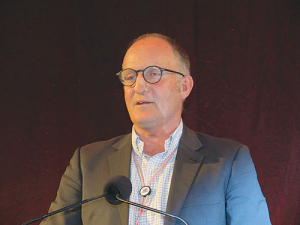Despite the unknowns of Brexit and the US-China trade war, New Zealand’s sheep and beef farmers are pretty bullish about the future.
Research by Beef + Lamb NZ shows that 70% of beef farmers and 64% of sheep farmers are positive about their industry.
BLNZ chair Andrew Morrison says the confidence comes with strong prices and a favourable $NZ. He cautions that traditionally August is the time when prices are high.
“While we’re fortunate to be enjoying high prices for our beef, lamb, and mutton at the moment,” Morrison told Rural News. “We need to be mindful that these aren’t guaranteed longer term, even though there are solid indicators that global demand for NZ’s sheepmeat and beef will remain strong.”
He says the implications of drought in Australia, France and Ireland also need to be taken into account, as do global trade issues.
“The other issue on their radar is the rise of alternative proteins. You can have all your good production systems back home and tick all the boxes such as greenhouse gas emissions and water. But if you get trade protectionism, it shuts you out of those key markets and that can stymie us at the last hurdle.”
Morrison says BLNZ, as an organisation, has been proactive in dealing with trade issues, e.g. its strategy ‘refresh’ that set specific priorities in trade and other areas of the business. Demand for grass-fed lamb is strong and it is moving into the high end of the market.
But although lamb is now doing well, no guarantees come with any market. And while sheep and beef farmers are bullish about the future they are watching for challenging headwinds.
“The sheep and beef sector is well positioned to respond to these challenges,” Morrison says.
“We have the Taste Pure Nature country-of-origin brand which will promote NZ’s premium grass-fed red meat overseas.
“We’re partnering with central and local government to develop better regulations that work for farmers and the environment, and we’re helping farmers to improve their environmental performance.”



















